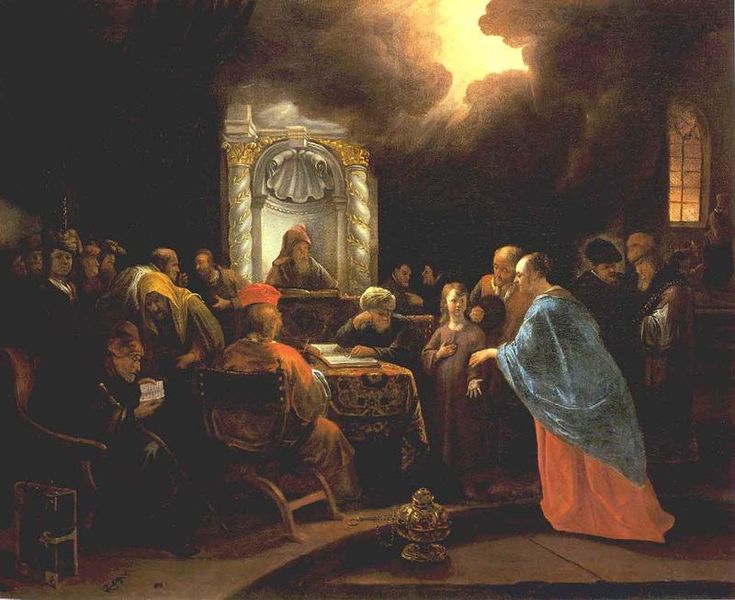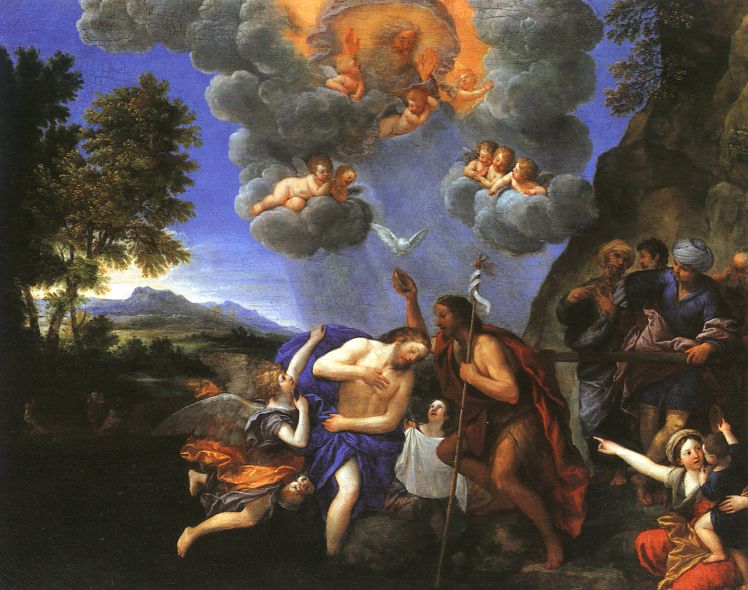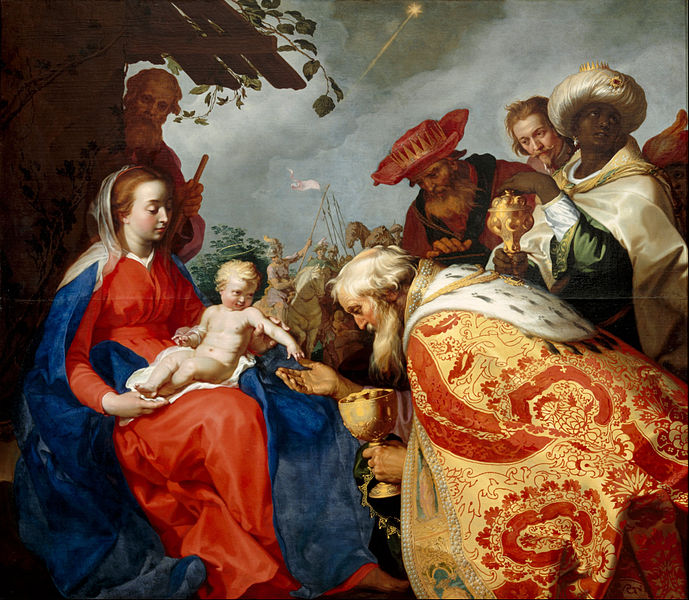Matthew 8:1-13
January 26, 2020
Let’s talk about faith. It seems most people think faith is important. But what does it mean to have faith? Faith is not some quality in your heart that makes you a better person than others. Faith is not persistent optimism that keeps you in a good mood. Faith is not your work at all. Rather, faith is a gift from God through which you receive God’s grace.
The first thing you need in order to have faith is so obvious, it is commonly overlooked. You need a need. You need to need something and know it. Most people know that they have needs and they are pretty confident they know what those needs are. The leper needed to be cleansed of his leprosy. The centurion needed his servant to be healed. You know what you need. You can feel it in your body, perhaps you can even point to it: backpain, heart disease, cancer. And it is those needs that you pray for. “God take away my pain.” “God heal my disease.” “God make my mother get better.” “God make peace in my family.”
But there is a need that we all must to be aware of in order to have true saving faith. That is our need to be forgiven and set free from our sin. Our sin not only hurts the people around us, but it separates us from God. If you do not think that you have this need, then you cannot have true faith, because true saving faith is the confidence that God will forgive your sins and save you for Christ’s sake. This is why people should not refuse to listen to the preaching of the Law. The Law tells you that you are a sinner. It points out what you do wrong. It does this in the Ten Commandments and other parts of Scripture that teach you how to love God and your neighbor. The Law is not hate-speech, although it can get you quite upset. Rather, the Law sheds light on your need, your greatest need, your need to be forgiven of all your sins. To have saving faith, you need to know that you are a sinner.
This means that faith does not boast in itself. Saving faith does not lead you to be proud of yourself. In fact, people who have saving faith do not claim to be better than those without faith. Look at the men, who begged Jesus for help in our Gospel lesson. Neither of them claimed to deserve what they were asking from Jesus. They didn’t claim to be worthy. The leper fell down at Jesus’ feet. In Luke’s Gospel, the Evangelist gives an account of the centurion asking Jesus to heal his servant. Yet, in Luke’s account he points out that the elders of the Jews tell Jesus that this centurion deserved to have Jesus heal his servant, because the centurion had done such great things for the people of Israel, like building their synagogue. Yet, in both Matthew’s and Luke’s account of this story, the centurion himself says that he is not worthy to have Jesus even come under his roof.
True saving faith does not claim worthiness to receive anything from God. Rather, true saving faith claims to be utterly unworthy of anything from God. And yet, true saving faith does not doubt that God will give us what we ask. This seems like a strange thing that Scripture teaches us. God desires two things from us with regard to our faith. First, that we be humble and not prideful. And second, that we do not doubt, but wholly trust in him, as Psalm 147 states, “The LORD takes pleasure in those who fear him, in those who hope in his steadfast love.”
Yet, how can God desire both that we claim no worthiness of our own, and yet at the same time that we do not doubt but firmly believe that we will receive what we claim to be unworthy to receive? Because true saving faith directs us away from ourselves and toward Jesus. I am unworthy to receive anything from God, but Jesus is worthy to receive all things, even eternal life. Faith does not depend on your worthiness at all, but solely on the merits of Christ Jesus. This means that however far you have fallen in your sin, no matter how grossly you have stained your conscience, saving faith gives you the same thing: Jesus, his forgiveness and righteousness.
Just look at the interaction between Jesus and the leper. Leprosy, as you know, was a terrible disease that caused sores over the whole body. Even worse, it made you an outcast. Leprosy made you ceremonially unclean. Lepers were forced out of their villages. Not only were they not allowed to go to the temple to worship, they were not allowed to go into their own homes. They had to live in leper colonies outside of villages. And if anyone were to approach them, they had to cry out, “Unclean, unclean!” The leper was deprived of the human touch. This leper was not allowed to hold his own child or even to touch his wife’s hand. How lonely he must have felt.
Leprosy was also commonly associated with God’s judgment. This is because on several occasions in the Old Testament, God punished people by giving them leprosy (Numbers 12:1-15; 2 Kings 5:15-27; 2 Chronicles 26:16-21). So, not only did the man feel isolated from his friends and family, but from God himself. How far from him God must have felt. The words of Psalm 38 must speak well for his heart, “Do not forsake me, O LORD! O my God, be not far from me! Make haste to help me, O Lord, my salvation!”
And see how Jesus treats this poor, lonely, unclean man. He stretches out his hand and touches him. That man had not been touched by another human in who knows how long. If you touch him you become unclean. But Jesus touches him. And then Jesus tells him in no uncertain terms, “I will; be clean.”
This is how Jesus deals with us sinners. Our sin separates us from God. It makes us unclean. God cannot dwell with unrighteousness. Yet, God becomes man in order to dwell with us sinners. Jesus joins us human beings and he takes on our sins. In this same chapter of Matthew after Jesus heals a number of people, Matthew writes, “This was to fulfill what was spoken by the prophet Isaiah: ‘He took our illnesses and bore our diseases.’” (Matthew 8:17) Normally, if you have a contagious illness, you will still have the illness even if you pass it on to someone else. If I have the flu and I give it to my wife, I don’t suddenly feel better, because she has taken it from me. No, we would then both have the flu. Yet, with Jesus he actually takes our diseases. Jesus took the leprosy from that man. Jesus became unclean and the man became clean!
And this is how it is with our sin. Jesus came to earth to be the Lamb of God, who takes away the sin of the world! He bears our sin, so that we do not have to! It is as Scripture says, “Christ redeemed us from the curse of the law by becoming a curse for us— for it is written, ‘Cursed is everyone who is hanged on a tree.’” (Galatians 3:13) Jesus came and took the curse from us by bearing the curse himself. He took our sin away. He took our uncleanness away. He touched us when the Law said that we were not allowed to go near God. He came to save us! And it is to this Jesus that our faith looks. Faith does not stand on our worthiness at all. Faith stands on Jesus Christ alone and his perfect work of redemption.
The man said, “If you will, you can make me clean.” It is not that the man doubted that Jesus desired for the man to be well. We know that God wants all that is good for us. But the man did not know whether at that time and place Jesus desired the man to be well. Sometimes God permits us to bear crosses in this life. He does this to teach us; to get us to cling to him more closely; he does this for our good. We don’t know how long God will have us bear these temporary crosses; that is left up to his hidden will. This is why we pray, “Thy will be done.”
Yet, we must not pray, “If you will, forgive me my sins.” as if we are unsure whether God wills to forgive us. We know that God desires to forgive our sins. When Jesus said, “I will; be clean.”, the man no longer doubted whether Jesus desired him to be healed then and there. And through Jesus’ word, we know that Jesus desires for us to be forgiven now, to wear his righteousness now.
Jesus tells us, “I will” when Scripture says, “The saying is trustworthy and deserving of full acceptance, that Christ Jesus came into the world to save sinners, of whom I am the foremost.” (1 Timothy 1:15) Jesus tells us, “I will” when Scripture says, “For by grace you have been saved through faith. And this is not your own doing; it is the gift of God, not a result of works, so that no one may boast.” (Ephesians 2:8-9) Jesus tells us, “I will” when he himself says in John 3:16, “For God so loved the world that he gave his only begotten Son, so that whoever believes in him shall not perish, but have everlasting life.” We know that Jesus is able to forgive us our sins, just as the leper was certain that Jesus had the power to cleanse his leprosy. And we have heard Jesus tell us that he is willing to forgive us now. Faith clings to this promise.
The centurion teaches us one more important lesson about saving faith. Faith trusts in Jesus’ word. The centurion said to Jesus, “But only say the word, and my servant will be healed.” The centurion was a man under authority and he had soldiers under him. When he told his subordinates to do a task, they did it in the centurion’s name. And so, it is with Christ and his word. When Jesus speaks a word, he speaks with the authority of God the Father. And when Jesus sends others to speak his word, that word is as powerful as if Jesus himself spoke it. This is how it is with God’s word. We must believe that if God were to have created a man before he created light, even a beggar, and were to say to that beggar, “Say, let there be light.” and the beggar were to say, “Let there be light,” there would be light as good as if God himself spoke it.
This is exactly what Jesus is teaching us when he says to those whom he sent, “The one who hears you hears me, and the one who rejects you rejects me, and the one who rejects me rejects him who sent me.” (Luke 10:16) When Jesus said all authority in heaven and on earth had been given to him and then commanded his disciples to make disciples by baptizing and teaching, he was saying that the words his disciples spoke had the same authority that God the Father had given to his Son Jesus Christ. This means that when a pastor, who is a mere mortal, speaks the words of Christ when he baptizes a poor sinner, God himself is washing that sinner clean of all sin and giving him the Holy Spirit.
People doubt this, because they focus on the inadequacies of the pastor, or the weakness of the faith of the person being baptized, or the simplicity of the water. And when they doubt the power of Baptism for these reasons, they behave like the leper Naaman, who thought so little of the River Jordan. But what did Naaman’s servant say to him? “Was it not a great word the prophet said to you? Did he actually say, ‘Wash and be clean.’?” Indeed, it was a great word; a word of God. And that is what we have in Baptism: a great word of God.
Likewise, Jesus sent his disciples saying, “If you forgive the sins of any, they are forgiven them. If you withhold forgiveness from any, it is withheld.” These are powerful words of Jesus, even when they are spoken by Jesus’ servants. But when Jesus says, “Do this.” It is done, whether by an angel or by a human.
Faith clings to Jesus’ word, no matter who speaks it, because Jesus’ word has the power to forgive and save. Jesus’ word is true. And when we believe what Jesus tells us, our faith becomes powerful. In Jesus’ name. Amen.




 RSS Feed
RSS Feed